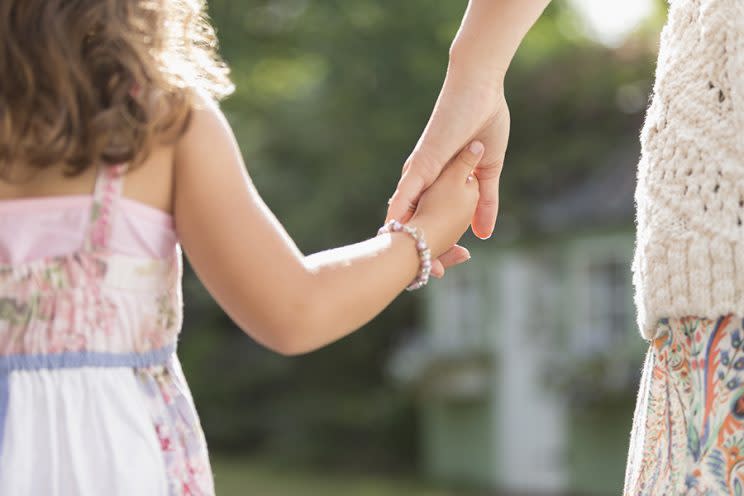Science Says the ‘Love Hormone’ Drives Mothers to Protect Their Kids

Protecting your kid from danger is a no-brainer, but the origins of your maternal instinct are a bit of a mystery.
For a new study published in the journal eLife, scientists wanted to discover why so many animals either freeze or flee when their offspring are in danger, but humans leap to their children’s defense — even when their own lives are at risk. The answer? It all comes down to a neurotransmitter called oxytocin.
Dubbed the “love hormone,” oxytocin is triggered through physical touch and is responsible for those blissful feelings you get when hugging, cuddling, or kissing another person. “Oxytocin is a powerful attachment chemical that drives maternal instinct,” biological anthropologist Helen Fisher (who was not involved in the study) tells Yahoo Beauty.
Knowing that the release of oxytocin into the amygdala (the portion of the brain that processes emotion) prevents animals from freezing, study authors decided to manipulate oxytocin in the brains of rats who had just given birth.
After separating mother rats from their babies, researchers trained the moms to associate the smell of peppermint with danger in the form of an electric shock.
Despite the upsetting way the study was conducted, two interesting things happened: When the rats experienced a flow of oxytocin in the presence of their babies, they tried to protect them from the odor, either attacking the tube that released it or comforting their little ones by nursing them or keeping them close.
However, when oxytocin was blocked, the mothers froze, leaving their offspring to fend for themselves.
The babies also learned from the experiment. Those whose mothers didn’t comfort them never acknowledged the peppermint smell as dangerous; babies whose mothers did comfort them understood that the scent of peppermint was a threat.
Yahoo Beauty could not reach lead study author Marta Moita for comment, but according to Fisher, a similar effect happens with humans. “If a mother tells her kid, ‘Don’t swim in the ocean because the waves are rough,’ that child understands it’s dangerous,” she tells Yahoo Beauty. Conversely, if a mother doesn’t warn her child, he or she might unknowingly be in danger.
The takeaway, according to Fisher: “Parents need to keep an eye on their children and signal them in times of threat.”
Read more from Yahoo Style + Beauty:
Follow us on Instagram, Facebook, and Pinterest for nonstop inspiration delivered fresh to your feed, every day. For Twitter updates, follow @YahooStyle and @YahooBeauty.
